Fire and Rescue
The fire and rescue service in Lincolnshire is committed to safeguarding lives, property, and the environment through rapid emergency response, proactive risk management, and initiatives that prioritise community safety and education. Careers within fire and rescue span three key areas: emergency response, prevention and protection, and integrated risk.
Each area plays a crucial role in ensuring the safety, resilience, and wellbeing of Lincolnshire’s residents. From responding to emergencies to promoting fire safety and managing risks strategically, these roles offer varied and impactful opportunities to make a real difference in the community.
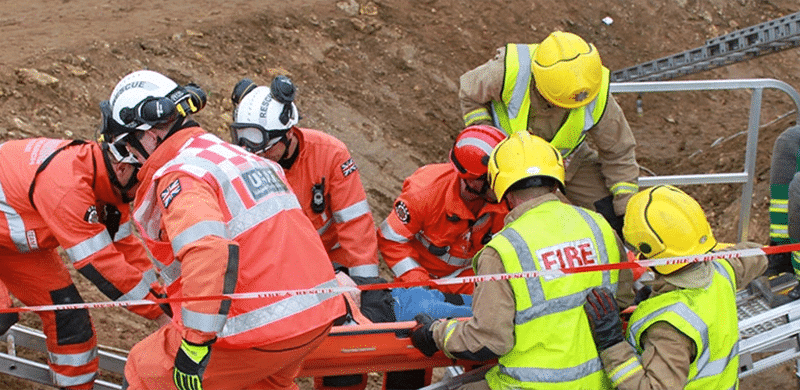
Areas that sit within this department include:

Emergency response
Emergency Response encompasses managing diverse and often life-threatening incidents, including fires, road traffic collisions, floods, and hazardous material spills. Teams are trained to respond swiftly and professionally, using their skills to minimise harm, protect property, and save lives. This demanding role requires rigorous training, exceptional situational awareness, and the ability to make critical decisions under intense pressure. Firefighters often work closely with other emergency services, such as police and paramedics, to deliver a coordinated and efficient response. Their work is pivotal in ensuring public safety and mitigating the impact of emergencies on communities.
Working in emergency response is ideal for individuals who excel in high-pressure environments and are deeply committed to protecting their communities. This demanding role requires exceptional physical fitness, mental resilience, quick decision-making skills, and a strong sense of teamwork.
If you’re passionate about making a real difference in critical situations, a career in emergency response offers both an exhilarating full-time opportunity and the chance to bring diversity and purpose to your everyday life as a retained firefighter.
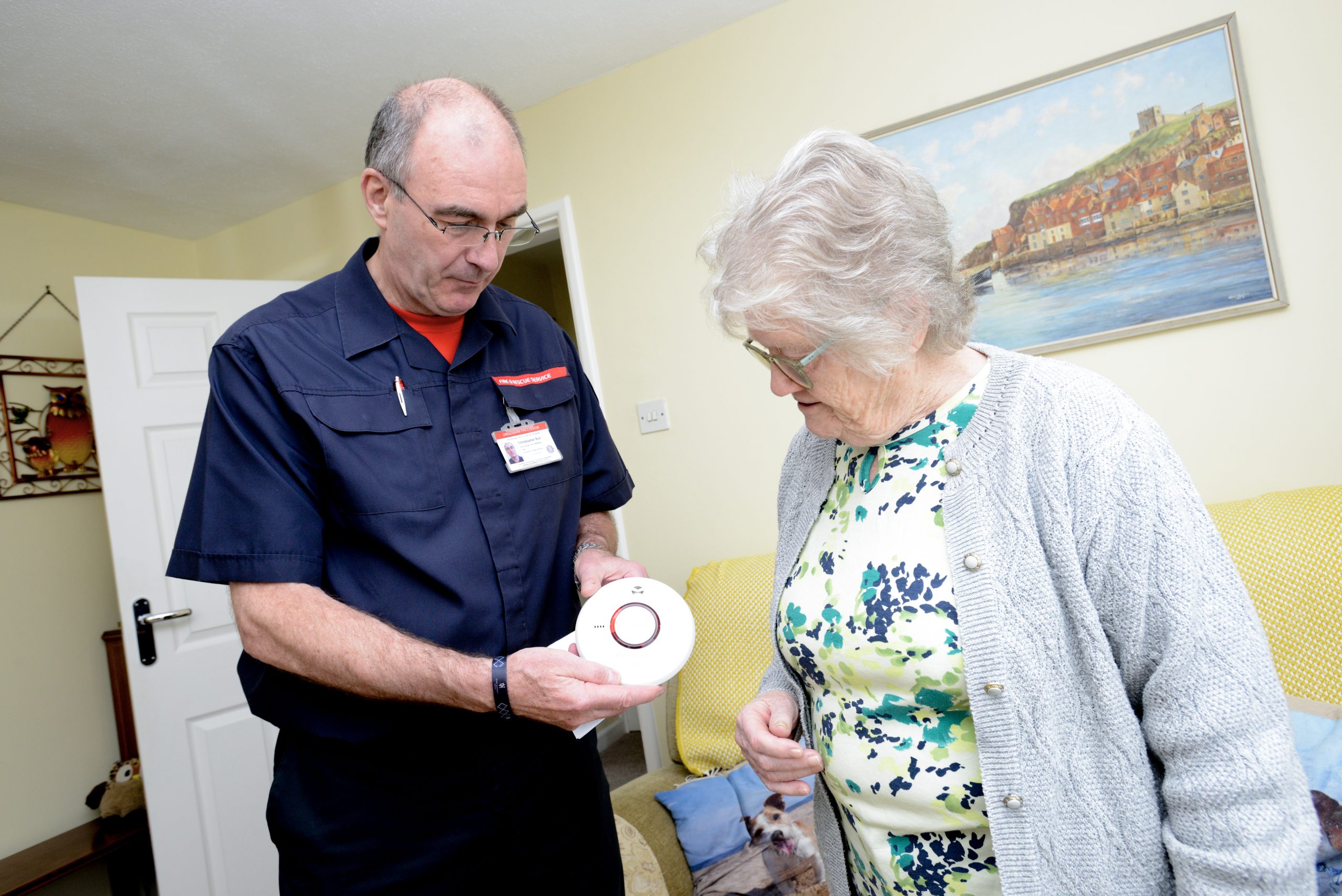
Prevention and protection
Prevention and Protection play a vital role in reducing risks and enhancing fire safety within communities. This area focuses on identifying potential hazards, conducting thorough fire safety inspections, and developing strategies to prevent incidents before they occur. Teams deliver educational programmes to raise awareness about fire prevention, empowering individuals and organisations to adopt safer practices. Collaboration is key, as professionals work closely with businesses, schools, and local organisations to implement effective safety measures and ensure compliance with fire safety regulations. These efforts contribute significantly to building safer, more resilient communities and reducing the likelihood of fire-related emergencies.
A role in prevention and protection is well-suited to individuals who are detail-oriented, proactive, and enthusiastic about educating communities on safety. Success in this area requires excellent communication skills, problem-solving abilities, and a strong commitment to creating safer environments.
If you’re enthusiastic about preventing harm and inspiring change, prevention and protection provide a rewarding path.
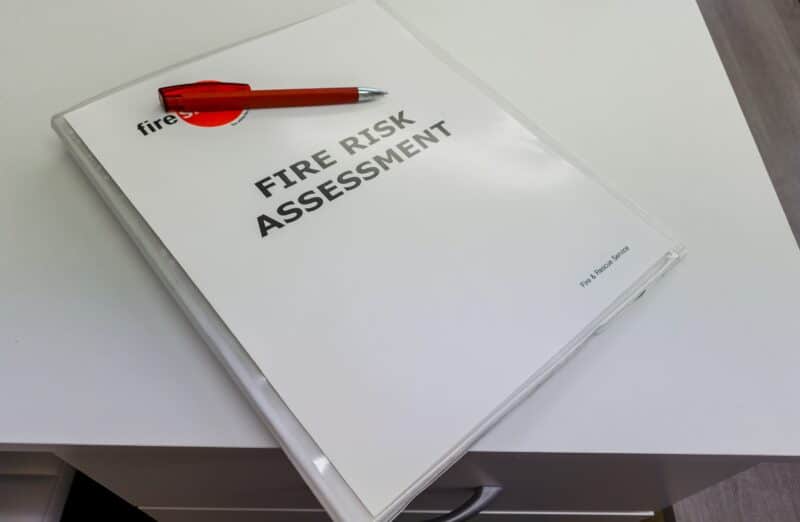
Integrated risk
Integrated Risk is a critical area that involves analysing extensive data to assess and prioritise risks, enabling teams to anticipate and prepare for emergencies effectively. Professionals in Integrated Risk develop comprehensive emergency response plans, allocate resources to address potential threats, and design policies to minimise risks to the public. They work collaboratively with local authorities, businesses, and community partners to ensure a unified approach to safety and resilience. By continuously evaluating and improving risk management strategies, Integrated Risk plays a vital role in protecting lives and property.
Roles in integrated risk are ideal for individuals who are analytical, strategic, and collaborative, with a passion for safeguarding communities. These positions demand expertise in risk management, effective problem-solving, data analysis, and the ability to make informed decisions.
If you excel in planning and have a passion for safeguarding communities, integrated risk offers a dynamic and meaningful career.
Check out the different roles below

Management and leadership team
Management and leadership roles in fire and rescue services involve providing direction, operational oversight, and policy development to ensure services are effective, efficient, and responsive to community needs. Responsibilities include setting objectives, managing budgets, ensuring compliance with operational standards, and fostering partnerships with government bodies, local organisations, and other emergency services. Leaders coordinate specialist teams, develop innovative risk management strategies, and drive continuous improvement. Additionally, they mentor staff, manage performance, and ensure organisational goals align with community safety priorities. These roles are pivotal in shaping the service’s success and safeguarding the community.
Key roles: Chief fire officer, deputy chief fire officer, assistant chief fire officer, incident commander, strategic risk advisor, health and safety officer, diversity and inclusion advisor.
Skills & attributes: Strong leadership and decision-making capabilities; Comprehensive knowledge of fire safety legislation, emergency planning, and risk management; Expertise in financial management, resource allocation, and strategic planning; Innovative thinking and problem-solving under pressure; Outstanding communication, negotiation, and stakeholder engagement skills.
If you are a visionary leader with exceptional organisational skills and a passion for making a tangible impact on community safety, management and leadership roles in fire and rescue offer an unparalleled opportunity to shape meaningful change.
Scorecard
Salary Potential*
Flexible Hours
Flexible Location
Physicality
*based on a 40-hour working week
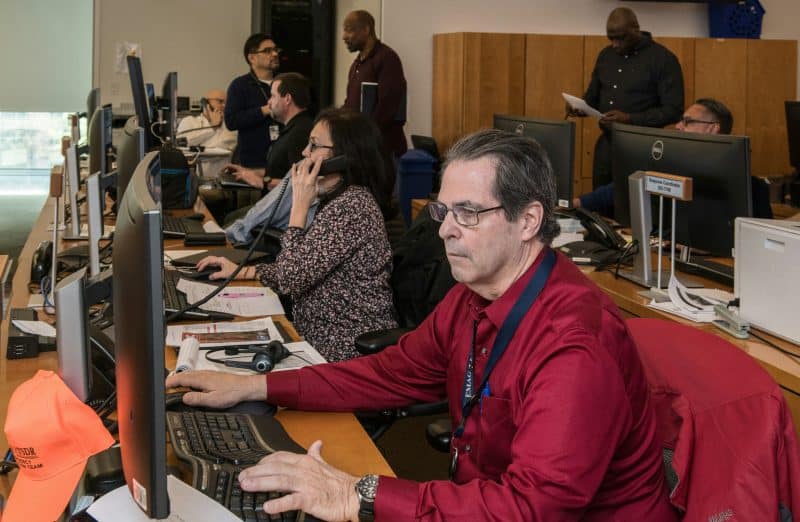
Emergency operations team
Emergency operations roles focus on direct response to critical incidents, such as fires, road traffic accidents, floods, and hazardous material spills. These professionals are highly trained to act swiftly, ensuring public safety and minimising harm. Responsibilities include operating firefighting equipment, rescuing individuals from dangerous situations, containing hazards, and working collaboratively with other emergency services. These roles demand strong physical fitness, mental resilience, and a team-orientated mindset to perform effectively in high-pressure environments.
Key roles: Firefighter, crew manager, watch manager, incident commander, specialist rescue technician (e.g., water, high-angle rescue and retained firefighters).
Skills & attributes: Quick decision-making under pressure; Physical strength, stamina, and agility; In-depth knowledge of firefighting techniques and emergency response protocols; Strong teamwork and communication abilities; Ability to remain calm and effective in life-threatening situations.
If you thrive in high-pressure environments, are physically fit, and have a commitment to public service, the emergency operations Team offers an exhilarating and impactful career.
Scorecard
Salary Potential*
Flexible Hours
Flexible Location
Physicality
*based on a 40-hour working week
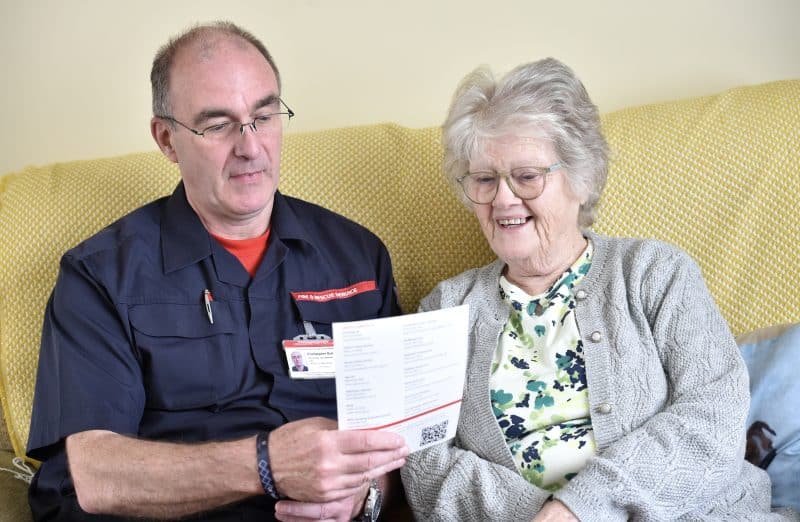
Community safety and fire prevention team
The community safety and fire prevention team plays a crucial role in reducing risks and promoting fire safety within communities. These roles involve carrying out detailed fire risk assessments, inspecting properties to ensure compliance with safety regulations, and delivering educational programmes to raise awareness about fire prevention. Teams work in partnership with schools, businesses, and local organisations to identify and address hazards, reduce risks, and create safer environments.
Key roles: Fire safety officer, community safety officer, youth engagement officer, education and outreach coordinator.
Skills & attributes: Excellent communication and public speaking skills; Strong attention to detail for assessing risks and hazards; Knowledge of fire safety legislation and compliance requirements; Problem-solving abilities and a proactive approach to challenges; Ability to work collaboratively with diverse groups.
If you are passionate about education, prevention, and building safer communities, the community safety and fire prevention team provides a rewarding career path.
Scorecard
Salary Potential*
Flexible Hours
Flexible Location
Physicality
*based on a 40-hour working week
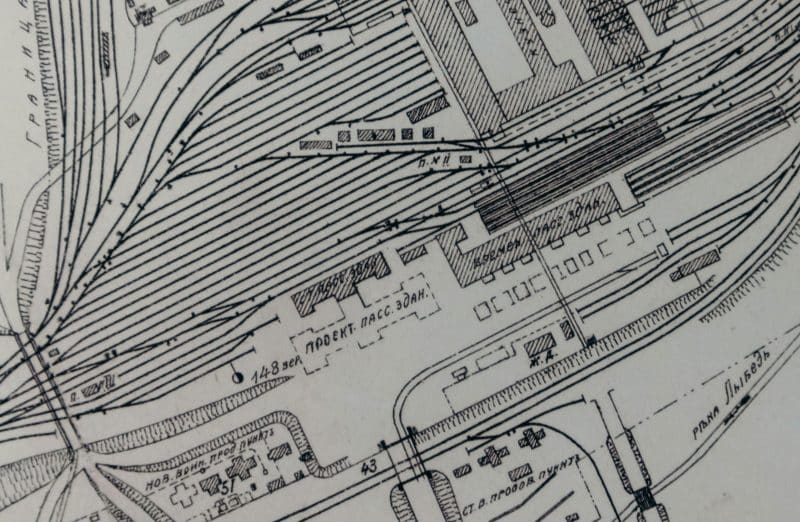
Strategic risk and resilience team
The strategic risk and resilience team plays a vital role in safeguarding communities by planning and mitigating risks to ensure safety and preparedness. These roles involve analysing data to identify potential threats, such as natural disasters or large-scale emergencies, and creating comprehensive emergency preparedness plans. Professionals design strategies to optimise resource allocation, ensuring an efficient and timely response to incidents. Collaboration is key, as they work closely with local authorities, businesses, and emergency services to strengthen resilience. Their efforts contribute to minimising risks, protecting lives, and enhancing the overall safety and security of communities.
Key roles: Risk management officer, data analyst (risk and incident management), emergency planning officer, resilience officer, strategic risk advisor.
Skills & attributes: Strong analytical and data interpretation skills; Expertise in risk assessment and emergency planning; Strategic thinking and decision-making abilities; Excellent collaboration and stakeholder engagement skills; Problem-solving mindset, with the ability to anticipate and address potential challenges.
If you enjoy strategic planning, data-driven decision-making, and contributing to long-term safety, the strategic risk and resilience Team offers a dynamic and impactful career.
Scorecard
Salary Potential*
Flexible Hours
Flexible Location
Physicality
*based on a 40-hour working week
In addition to customer-facing roles, departments within the council rely on support functions like marketing, finance, HR, IT, procurement and operations. For more information on these departments and the roles they offer, click here to explore further.
For local courses and education providers that could support your career with the council please click here.

